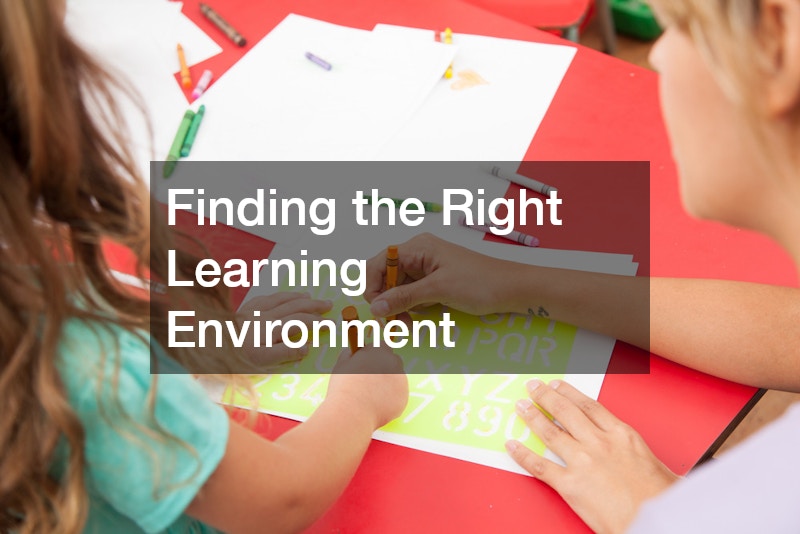Raising a child comes with a beautiful tapestry of challenges and rewards, each as unique and diverse as the individuals they involve. As parents and caregivers, understanding the nuanced aspects of promoting healthy growth and development progress in children is crucial. As the foundation for a lifetime, facilitating a nurturing environment that caters to the child’s evolving needs is imperative. This article takes a deep dive into the significant landmarks of childhood development, providing insights into creating conducive environments for learning, health, and overall well-being. Whether you’re a new parent or a seasoned caregiver, this guide offers a comprehensive look at the essential elements needed for developmental success.
Selecting the right resources and tools in your child’s early years can significantly impact their development. From choosing a preschool that aligns with their unique characteristics to understanding the specific accommodations required for children with special needs, each decision contributes to their growing capabilities and confidence. As we navigate through various aspects of children’s daily lives—like building physical strength with swimming classes or establishing essential health routines such as dental care—we seek to gain a broader perspective on facilitating development progress.
Moreover, addressing medical needs through early interventions like visits to the ear doctor, or ensuring overall health via regular check-ups at a medical wellness clinic, sets the groundwork for a healthy future. Furthermore, leveraging appropriate therapies, home safety equipment, and even aesthetic aids like hair care supply for confidence building, forms part of the holistic approach to nurturing young minds. This article aims to furnish you with the knowledge and encouragement to support your child’s journey—one milestone at a time.
Finding the Right Learning Environment

Choosing a preschool is often the first major educational decision for parents. A well-suited preschool should align with the child’s needs and interests to spark curiosity and ignite the development progress. This stage is pivotal as it sets the tone for their academic journey, impacting how they engage with learning in the future. Look beyond academics; the social environment and emotional support are equally crucial.
When evaluating preschools, consider their educational philosophy and how it engages the developmental milestones. Schools that offer a balance of play and structured activities often help in nurturing cognitive and social growth. Pay attention to the teacher’s qualifications, student-to-teacher ratios, and how the institution accommodates individual learning styles, which is particularly important if the child has any special needs.
Moreover, involving children in the selection process can bolster their confidence. Visiting potential preschools and observing classes can give insights into the environment. This participation fosters a sense of belonging and aids in the child’s emotional and social development progress by aligning their expectations with reality. Listen to any concerns they express, ensuring their comfort and enthusiasm for this new adventure in learning.
Home Accommodations
Creating a supportive home environment is critical for encouraging healthy development. For families with special needs children, choosing the right accommodations, like beds for special needs children, plays a quintessential role in promoting comfort and security. Adaptations in the home can effectively cater to children’s unique requirements, ensuring they enjoy a space conducive to growth and exploration.
Beds for special needs children come in various designs, each tailored to address specific challenges, such as issues with mobility or sleep disturbances. Choosing the right bed not only ensures safety but also contributes to a child’s sleep quality, which is paramount for development progress. Parents can also consider modifications like bed rails or specialized mattresses to enhance safety and comfort.
In addition to physical accommodations, creating a structured yet flexible routine at home can support a child’s emotional needs. Establishing a sense of order, while allowing room for spontaneity, helps children develop mental resilience. As they familiarize themselves with their environment and routine, their confidence grows, contributing greatly to their overall development progress.
Building Strength
Physical development is as integral as cognitive and emotional growth. Engaging children in physical activities such as swimming classes can significantly benefit their development progress. Swimming not only builds physical strength but also enhances coordination, promotes cardiovascular health, and provides social interaction opportunities that are essential for developing interpersonal skills.
Swimming classes offer a unique combination of structured learning and playful interaction, serving as an excellent platform for children to burn energy while learning new skills. The buoyancy of water also supports children with physical limitations, allowing them to move more freely and confidently than they might on land. This environment is especially advantageous for children needing therapeutic physical exercise.
Beyond physical benefits, swimming classes boost a child’s self-esteem. The progressive nature of swimming, where skills are built over time, teaches perseverance and resilience. As they master new abilities, children experience a sense of achievement that reinforces their confidence and contributes significantly to their emotional development progress.
Establishing Routine Care

Regular health check-ups and routine care, such as dental care, form the foundation of a child’s overall well-being. Maintaining oral hygiene from an early age is crucial for preventing long-term dental issues, making routine dental visits an essential aspect of health management. The habit of consistent dental care contributes greatly to a child’s health journey and is pivotal in maintaining their development progress.
Establishing a dental care routine involves teaching children the importance of brushing, flossing, and regular check-ups. Finding a child-friendly dentist can make visits less daunting and ensure that children receive the specialized care they need. A dental care regimen not only maintains oral health but also instills discipline and responsibility—a vital part of child development.
Furthermore, routine care extends beyond dental health. Incorporating regular appointments with various healthcare providers, including ear doctors, ensures early detection and management of potential issues. Early interventions in hearing or ENT-related concerns can prevent future complications, supporting the child’s continued development progress through consistent medical oversight.
Early Interventions
Early medical interventions, such as regular check-ups with an ear doctor, are critical in identifying and addressing health concerns before they escalate. Hearing is a fundamental part of language acquisition and social interaction, making it a critical component in a child’s development progress. Regular visits and appropriate interventions ensure that any issues are managed promptly, supporting overall development.
Routine hearing evaluations help in monitoring a child’s auditory health. If left unchecked, hearing problems can impede communication skills, leading to academic challenges. Early detection and intervention can significantly enhance a child’s learning abilities, ensuring they achieve their educational milestones and maintain healthy social interactions.
Additionally, addressing hearing issues early fosters a more inclusive learning environment. With early interventions, schools can provide the necessary accommodations or support systems to ensure the child is not disadvantaged. This proactive approach aids in the child’s development progress, allowing them to engage fully in their educational journey.
General Health and Wellness
Ensuring overall health and wellness through regular visits to a medical wellness clinic is vital for holistic development. These clinics offer a broad range of services that cater to different aspects of health, from preventive care to chronic condition management. Regular health assessments help track development progress and adopt timely interventions if needed.
Medical wellness clinics provide a comprehensive overview of a child’s health, often incorporating nutrition counseling, physical assessments, and mental health support. This integrative approach ensures that all aspects of a child’s well-being are considered, allowing for a well-rounded development journey that addresses physical, cognitive, and emotional health.
Moreover, engaging with a medical wellness clinic helps establish health literacy. Educating caregivers on health practices empowers them to make informed decisions about their child’s well-being. This knowledge transfer is a crucial part of development progress, as it ensures sustained health management practices even outside of clinical settings.
Appropriate Therapies

For some children, incorporating therapies like sleep apnea therapy may be necessary to address specific health disorders. Children with sleep apnea often face interrupted sleep, which can affect their cognitive abilities and emotional regulation. Proper diagnosis and intervention using therapies ensure these challenges do not hinder their development progress.
Sleep apnea therapy for children involves specialized techniques and equipment designed to promote better breathing during sleep. It might include the use of CPAP machines or lifestyle adjustments that improve airway health. Providing tailored treatments leads to improved sleep quality, which is essential for cognitive functioning and emotional stability.
Besides medical benefits, aligning therapies with the child’s needs can significantly boost their confidence. Children who undergo effective intervention often show marked improvements in attentiveness, mood stability, and academic achievements, indicating success in their developmental milestones. Encouraging such therapies is a proactive step in the child’s holistic development progress.
A Safe Home
A safe home environment is foundational to a child’s sense of security and development progress. Incorporating safety aids, such as lift chairs, can be especially beneficial in homes with limited mobility considerations. Lift chairs offer increased independence for children and provide an ergonomic solution to daily living challenges.
Lift chairs promote mobility, allowing children with physical limitations to move more freely within their homes. These devices help prevent falls and injuries and are particularly useful for fostering independence in routine activities. For families, this addition can empower both children and caregivers by easing mobility concerns.
Beyond the physical support, lift chairs contribute to the emotional well-being of children, as the ability to navigate one’s environment safely fosters a sense of autonomy. Feeling in control of their personal space enhances self-esteem and supports their development progress, laying a foundation for future independence and self-reliance.
Accessible Solutions
Incorporating accessible solutions like a mobility scooter into a child’s life can significantly enhance their freedoms and participation in social and recreational activities. Mobility scooters offer an ideal solution for children who may struggle with conventional transportation methods due to physical limitations. Such aids promote inclusion and equal participation in various activities.
The strategic incorporation of mobility aids empowers children, enabling them to explore and engage with their environments independently. This independence is crucial for cognitive and social development, as it allows for self-guided learning and play. Mobility scooters, therefore, act as a cornerstone for achieving developmental milestones.
Ensuring accessibility also teaches important life skills like responsibility and self-management. Children using mobility scooters must learn to operate them safely, fostering self-discipline and assessment abilities crucial for their development progress. As children navigate their mobility and access newfound independence, their confidence and self-esteem are markedly boosted.
Aiding Confidence

Another layer in nurturing a child’s development is addressing their self-esteem and confidence. Sometimes simple aids, such as hair care supply, can significantly impact a child’s self-image and confidence levels. Ensuring they have the right tools to manage their personal grooming can positively influence how children see themselves and how they interact with their peers.
Providing children with appropriate hair care supply ensures that they understand and engage with personal grooming practices early on. This understanding not only contributes to their personal hygiene but also their self-worth and confidence. Confidence in personal appearance plays a pivotal role in a child’s social interactions and peer relationships, crucial elements in their development progress.
Moreover, when children feel good about themselves, they are more likely to participate in social and academic activities, increasing their opportunities for learning and growth. This confidence can propel them to step out of their comfort zones, explore new interests, and embrace diverse challenges, all of which are essential for robust development progress.
Conclusion
In sum, fostering a child’s development progress entails attention to numerous and varied aspects of their lives. From the first decision of choosing a preschool to ensuring appropriate medical interventions, each element plays a critical role in shaping their journey. Creating a supportive environment, both at home with suitable accommodations and in social spaces like swimming classes, underpins their physical, emotional, and cognitive growth.
Essential routine care practices, like dental hygiene, coupled with early and regular check-ups with professionals such as ear doctors, safeguard their health, and prevent potential obstacles in their development. The necessity of therapies when required, paired with supportive aids like lift chairs and mobility scooters, ensure that children can navigate life with confidence and independence.
By holistically addressing these needs, caregivers empower children to not only meet but exceed developmental milestones. As nurturers of potential and architects of the future, recognizing and responding to the vast array of needs is an ongoing journey. Yet, with each step taken to accommodate these aspects, caregivers set the stage for a lifetime of discovery, learning, and success for the child.


